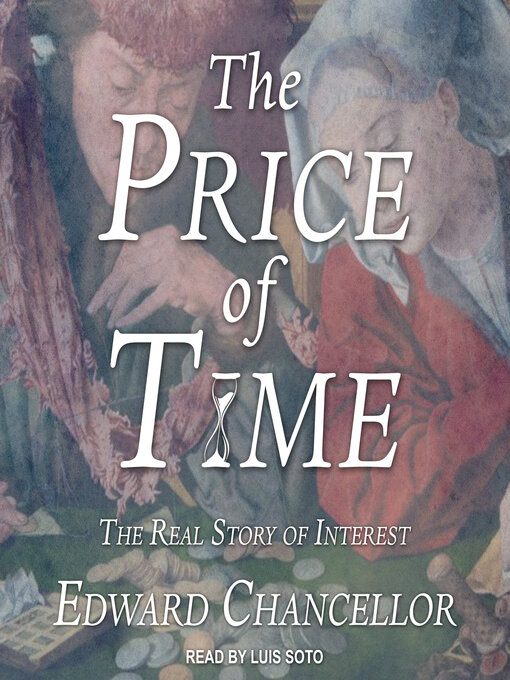The Price of Time
The Real Story of Interest
Interest is often described as the "price of money," but it is better called the "price of time:" time is scarce, time has value, interest is the time value of money.
Over the first two decades of the twenty-first century, interest rates have sunk lower than ever before. Easy money after the global financial crisis in 2007/2008 has produced several ill effects, including the appearance of multiple asset price bubbles, a reduction in productivity growth, discouraging savings and exacerbating inequality, and forcing yield starved investors to take on excessive risk. In this enriching volume, Chancellor explores the history of interest and its essential function in determining how capital is allocated and priced.
Bonus material: This audiobook includes supplemental material in printable PDF format.
-
Creators
-
Publisher
-
Release date
August 16, 2022 -
Formats
-
OverDrive Listen audiobook
- ISBN: 9798765057551
- File size: 435455 KB
- Duration: 15:07:11
-
-
Languages
- English
-
Reviews
-
Publisher's Weekly
August 29, 2022
Historian Chancellor (Crunch-Time for Credit) offers an exhaustive history of credit and interest rates. Charging for the use of money is an ancient practice, he shows: during the third and second millennia BCE, loans of silver or barley were repaid at a premium. Interest rates have frequently been kept low by governments or central banks, Chancellor writes, but generally with disastrous consequences. Chancellor contends that “interest is required to direct the allocation of capital, and that without interest it becomes impossible to value investments.” He offers an extensive look at interest during America’s Great Recession, when the Federal Reserve “cut its lending rate to a record low, targeting a range of 0 to 0.25 per cent.” The current economy, he suggests, is one of “fake money fake interest rates,” likening it to The Truman Show, and concluding that “nobody knows” how it will end. Along the way, Chancellor introduces a wealth of economic theories, including those of 17th-century contemporaries Josiah Child, who pushed for lower rates, John Locke, who disagreed, as well as that of William Easterly, a 21st-century economist who wrote: “Becoming rich is a choice between today’s consumption and tomorrow’s.” Readers interested in the history of finance will find much to consider.
-
Loading
Why is availability limited?
×Availability can change throughout the month based on the library's budget. You can still place a hold on the title, and your hold will be automatically filled as soon as the title is available again.
The Kindle Book format for this title is not supported on:
×Read-along ebook
×The OverDrive Read format of this ebook has professional narration that plays while you read in your browser. Learn more here.

